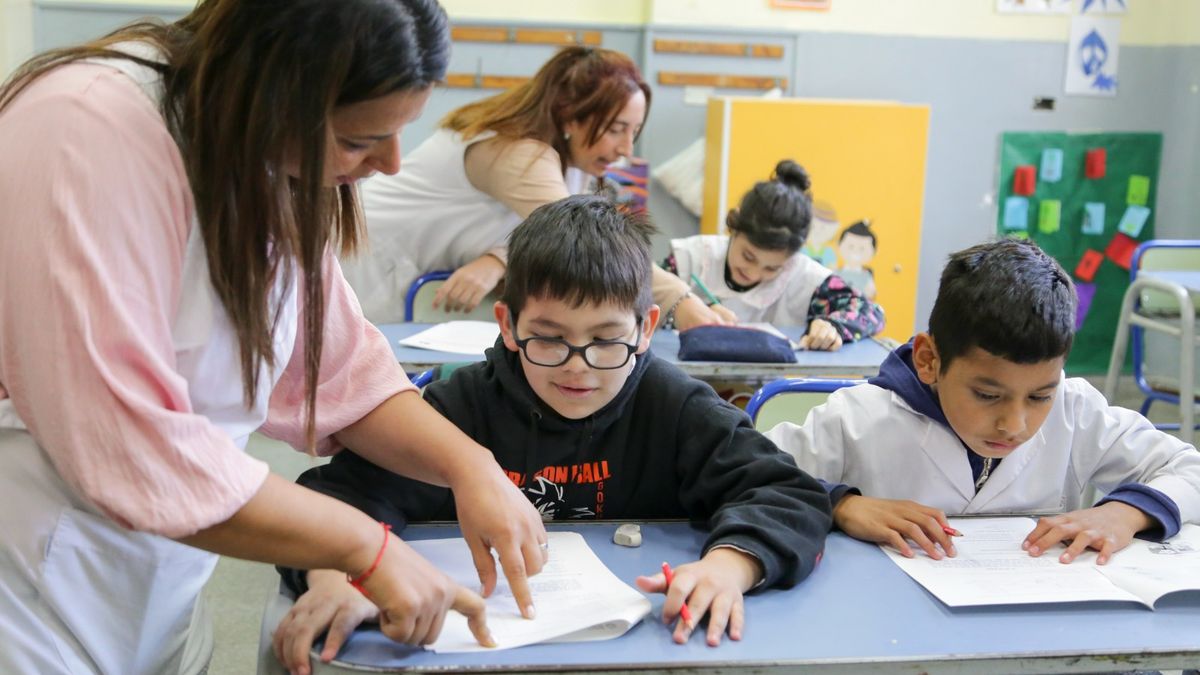This week I was asked what I would ask of the candidates regarding the education in this campaign time. Without hesitation, I replied, that when they are government they visit schools every week. Not to do party politics, of course. This call is for the future president, vice president, and ministers of all areas (and not just those of education); the same as for legislators; governors and mayors. But they should not go to inaugurate works (which have often already been inaugurated) or to be in events organized and staged for them, where they are on a platform far from students and teachers.
I would ask them to visit schools almost incognito weekly, to sit in the garden chairs and participate in a class or the entrance assembly. That they are in fourth grade where today, in general, half of the boys and girls cannot read aloud well or do not understand the text they are reading. Recent data from the Regional Comparative and Explanatory Study (ERCE) indicate that 46% of Argentine students in 3rd grade do not reach the minimum reading level.
I would ask them to enter a high school classroom where, in many schools, only three boys in the front follow their math class and the rest are in the back waiting for the hour to pass. In Argentina, last year the Ministry of Education of the Nation released the results of the Aprender 2021 tests, where in Mathematics, only 22.1% reach the basic level, while 23.1% are at a lower level. below basic. This means 3.5 percentage points more students who are located in the lowest performance category in relation to the results obtained by the same study in 2018.
I would beg them to sit down and talk with the families at the school gate, to listen to their sorrows and their requests so that their children, who are already in third grade, can learn to read. But, in addition, I would implore you to ask permission to go to the bathroom or sit in the dining room to have a glass of milk or lunch and to share what the educational communities experience on a daily basis.
Eyes that do not see, heart that does not feel, my grandmother used to say. And I am convinced that it is so. As long as officials from all governments, from all corners of the State and of all political colors, do not come close to living what a school lives on a daily basis, we will have no chance of improvement. Because, sadly or not, they are the ones who can “twist” where the funds go. They are the ones who will have in their hands the possibility of deciding on the lives of millions of students. They are also the ones who can restore the most fundamental right that has been taken from them: the right to an education that allows them to develop and expand, beginning with the possibility of knowing how to read and write.
What is the future of literacy and how are we going to ensure that one hundred percent of the students learn to read, understand and write in a timely manner?
According to data from the Argentine Observatory for Education, In Argentina, only 16 out of 100 students finish high school in the expected time (12 years) and with the knowledge mYoencouragement of Language and Matemtoethics.
We need the candidates to get involved and understand the drama of a nation that is not literate and understand that what we did in the last 20 years to teach reading and writing only worked for less than half of the student body. This same crisis has been experienced in other countries and they are looking for ways to get ahead. It is interesting to take what is happening in the United States as an example.
After heated debates, states are making laws about which programs schools can use to teach reading and which ones they can’t. Several states, then, have begun to implement teaching programs in reading comprehension and writing, “based on scientific evidence”, in studies, in the follow-up of the programs with analysis of results. To do this, teachers have to go through hours of updating to understand what neuroscientists have discovered in recent years and to learn the ways to teach what is known as “skilled reading.”
If we want to be a literate nation again, we need more than wishful thinking. We need the candidates to get involved by putting their bodies, learn about the daily reality of schools across the country, and start talking about concrete and scientifically proven tools. Gentlemen candidates, come to the school. Teachers, and mainly students, need them.
Teacher, researcher and writer specializing in Education. Director of Educere NGO.
Source: Ambito
David William is a talented author who has made a name for himself in the world of writing. He is a professional author who writes on a wide range of topics, from general interest to opinion news. David is currently working as a writer at 24 hours worlds where he brings his unique perspective and in-depth research to his articles, making them both informative and engaging.




